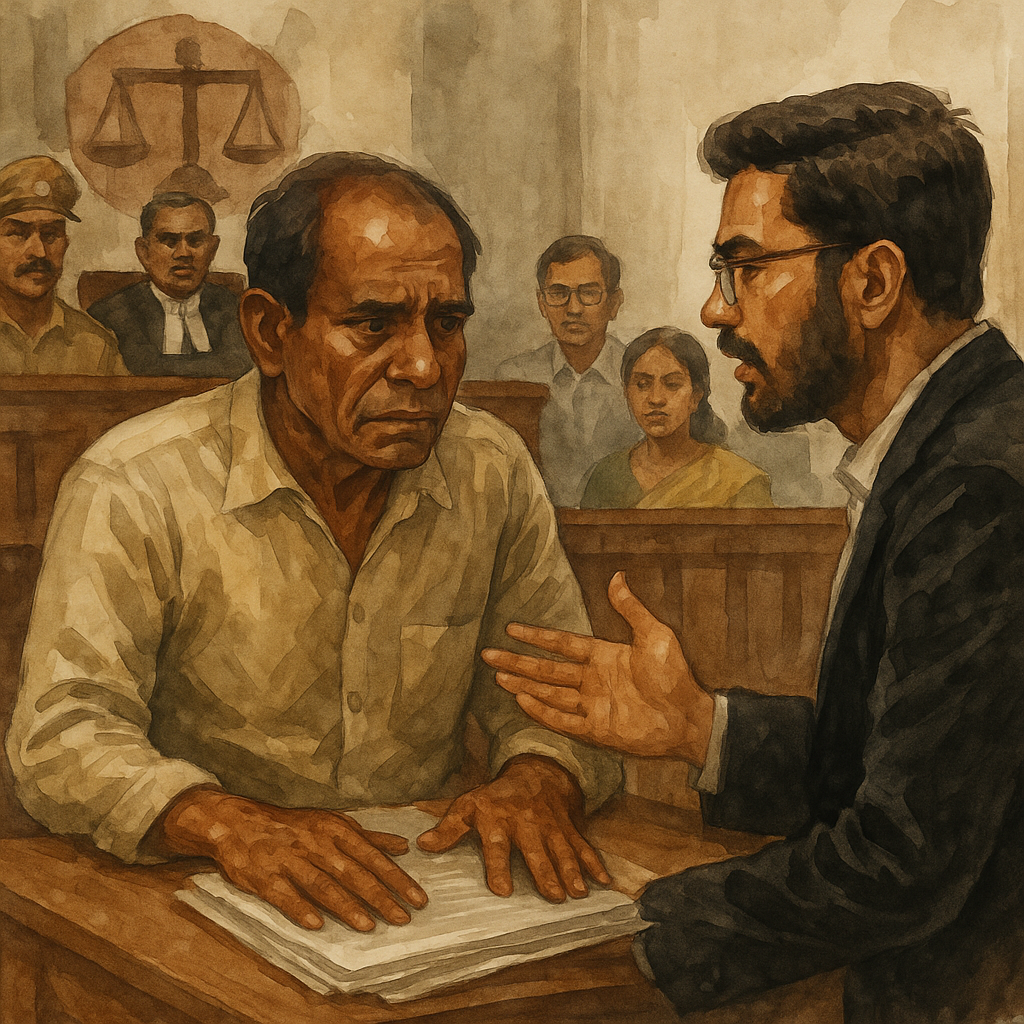Simplified Explanation of the Judgment
In this case, the Hon’ble Patna High Court was asked to consider whether a sale agreement for land that is part of a joint Hindu family property is valid when executed by a junior member of the family. The appellant (defendant) challenged the decisions of the Trial Court and the Appellate Court, both of which had ruled in favor of the plaintiff (respondent), ordering specific performance of a registered sale agreement.
The dispute stemmed from a registered agreement to sell one Katha of land dated 15.06.2005. The plaintiff claimed that he had paid Rs. 9,350 as an advance toward a total sale consideration of Rs. 80,000. He alleged that despite repeated demands and notices, the defendant refused to execute the sale deed. Consequently, he filed a suit seeking specific performance of the contract and recovery of possession of the property.
The defendant admitted to signing the agreement but raised multiple defenses:
- His consent was obtained under influence.
- The land was part of joint family property, and he could not sell it without the karta’s (family manager’s) permission.
- He was mentally unwell at the time of signing the agreement.
After evaluating both oral and documentary evidence, the Trial Court decreed the suit in favor of the plaintiff. The First Appellate Court upheld this judgment. Aggrieved, the defendant filed a second appeal before the Patna High Court.
The High Court examined whether:
- A junior coparcener can validly enter into a sale agreement for joint family property.
- The agreement was affected by the principle of lis pendens under Section 52 of the Transfer of Property Act, as the property was allegedly under litigation in a partition suit.
- The lower courts failed to consider critical documents and oral evidence.
The Court dismissed each of these arguments:
- It held that, as per the Supreme Court’s ruling in Gajara Vishnu Gosavi v. Prakash Nanasahed Kamle [2009 (4) PLJR 225 (SC)], an undivided share of a coparcener can be sold, and such a transaction is legally valid.
- The court clarified that since the suit property was not part of the ongoing partition suit, the doctrine of lis pendens did not apply.
- The court found that the documents and evidence had indeed been considered by the lower courts and refused to re-evaluate the same in a second appeal.
Regarding the mental health claim, the defendant failed to submit any medical records to substantiate his claim. He also admitted in cross-examination that his signatures and thumb impression on the agreement were genuine. This negated any claim of mental incapacity or coercion.
In conclusion, the High Court found no substantial question of law involved and dismissed the appeal at the admission stage itself.
Significance or Implication of the Judgment
This judgment affirms that a coparcener in a Hindu joint family can legally sell their undivided share in the family property through a valid agreement. It also clarifies that lis pendens applies only if the specific property in dispute is already part of ongoing litigation.
For common citizens, especially those dealing with ancestral or joint family land, this decision highlights the legal validity of selling undivided interests. It also underscores the importance of clear documentation and proof when challenging contracts based on mental incapacity or family jointness. For government and revenue authorities, this ruling can guide property registration and mutation processes where such partial sales occur.
Legal Issue(s) Decided and the Court’s Decision
- Whether a junior coparcener can sell joint family property:
- Yes, the sale of undivided share is valid.
- Whether the agreement was barred by lis pendens due to a partition suit:
- No, as the land was not part of that suit.
- Whether evidence was improperly ignored by lower courts:
- No, evidence was duly considered.
- Whether mental incapacity of the defendant invalidated the agreement:
- No, no evidence of mental disorder was produced.
Judgments Referred by Parties
- Nagu Bai Ammal and Others v. B. Shama Rao and Others, AIR 1956 SC 593.
Judgments Relied Upon or Cited by Court
- Gajara Vishnu Gosavi v. Prakash Nanasahed Kamle and Others, 2009 (4) PLJR 225 (SC).
Case Title
Second Appeal No. 383 of 2018
Case Number
Second Appeal No. 383 of 2018
Citation(s)
2020 (1) PLJR 657
Coram and Names of Judges
Hon’ble Mr. Justice Sudhir Singh
Names of Advocates and Who They Appeared For
- For the Appellant: Mr. Umesh Prasad Singh (Senior Advocate), Mr. Mithilesh Kumar Rai, Mr. Lakshman Lal Pandey, Mrs. Ruchhi Singh, Mr. Abhishek Kumar, and Mrs. Vandana Kishore.
- For the Respondent: Mr. Chandra Kant and Mr. Navin Kumar.
Link to Judgment
https://patnahighcourt.gov.in/vieworder/OSMzODMjMjAxOCM2I04=-rHUyJ11ZMDk=
If you found this explanation helpful and wish to stay informed about how legal developments may affect your rights in Bihar, you may consider following Samvida Law Associates for more updates.









